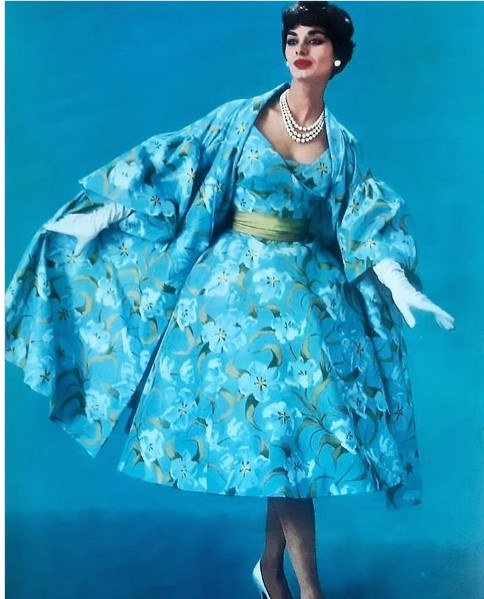I have spent most of the winter knitting instead of sewing, Heck, it took me a almost all of February to finish my last sweater because the whole thing was a lace pattern, So I was happy to switch gears and sew up this version of a 1959 Balmain design (pic at end). The fabric is a lovely cotton lawn print by David Rose Designs on Spoonflower and the belt is silk. I did use the bodice pattern from Vogue 8055 but I made some alterations to it. I made the front points higher and I found that the underbodice gaped in the front so I altered that too. I can't tell from the original if the dress is strapless or not so mine is. This is the first time I attempted a zipper in a dress that already had the side seams sewn up. Definitely trickier but, since the belt closes with a snap in the back, I didn't like idea of two snaps on top of each other. Too much bulk. The swing coat and the skirt are my original patterns though. Hard to tell from the inspiration pic but the coat looked like it might have a shawl collar so that's what I did. The entire ensemble is lined in white silk/cotton. The pillbox hat is made from cotton and decorated with a flower and stamens. There is also a tulle petticoat under the skirt to keep the fullness. The dress, coat, belt, hat and petticoat are available for $160 plus $6.00 boxed shipping in the US. Email me at nwickman@chartermi.net if interested.
Here it is modelled by a Gene I don't know the name of.


















































